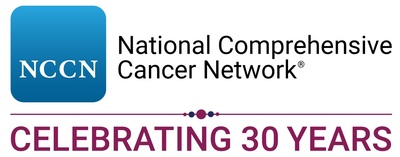WASHINGTON, Feb. 17, 2022 /PRNewswire/ — Yesterday, United States Senators Ben Cardin (D-MD) and Lisa Murkowski (R-AK) introduced the Reducing Hereditary Cancer Act, bipartisan legislation to expand access to medically-appropriate genetic testing to determine an individual’s risk of developing hereditary cancer—and access to evidence-based medical care to reduce risk for those who have a predisposing genetic mutation. The Senate bill is identical to H.R. 4110, introduced in the House in June of 2021.
Medicare currently covers genetic testing only for people who have already been diagnosed with cancer, regardless of a history of cancer or known genetic mutations in their family. It does not cover medically necessary cancer screenings or risk-reducing interventions for individuals who have a genetic mutation increasing their cancer risk.
FORCE: Facing Our Risk of Cancer Empowered and the National Comprehensive Cancer Network® (NCCN®) are proud to advocate for this legislation that would remedy a longstanding Medicare gap, ensuring that beneficiaries at increased risk of cancer have access to standard-of-care genetic counseling, testing, screening, and risk-reducing interventions.
This proposed law will enable coverage of guideline-recommended genetic testing for inherited mutations known to increase cancer risk in two Medicare populations: those with a known hereditary cancer mutation in their family as well as those with a personal or family history that suggests a higher risk for hereditary cancer. For Medicare beneficiaries who have one of these gene mutations, the law will enable coverage of increased cancer screening (e.g., breast MRIs, more frequent colonoscopies) and risk-reducing surgeries (e.g. hysterectomy).
“With the ability to identify individuals who carry these mutations (via a simple saliva or blood test), there is an opportunity to prevent or detect cancers earlier, when they are easier and less expensive to treat,” explains Lisa Schlager, Vice President of Public Policy for FORCE. “Access to risk-based screening and preventive medicine is critical. We believe this effort aligns with the goals of the Cancer Moonshot and the President’s Cancer Panel report on ‘Closing the Gaps in Cancer Screening.’ This legislation will help minimize barriers to care, ultimately reducing health disparities while saving lives and money.”
Inherited genetic mutations (BRCA, ATM, CHEK2, PALB2, Lynch syndrome, etc.) are associated with an increased risk for a number of malignancies, including breast, colorectal, prostate, pancreatic, ovarian, stomach, and endometrial cancers. Up to 10% of all cancers are due to a cancer-related genetic mutation; although that number is significantly higher for certain cancers like ovarian, where nearly 25% of cases are due to an inherited mutation. The more prevalent cancer-related genetic mutations are found in approximately one in every 300 Americans, with certain populations and ethnicities having higher rates.
“This bipartisan bill will improve early detection of hereditary cancers and allow focused, enhanced preventive strategies to reduce unnecessary pain, suffering, and death,” said Robert W. Carlson, MD, Chief Executive Officer of NCCN—a nonprofit alliance of leading cancer centers that publishes free, frequently-updated expert-consensus guidelines on genetic/familial risk reduction and other topics. “Medicare beneficiaries deserve access to the same standard of preventive care and early detection as Americans with private insurance. We applaud the sponsors of the ‘Reducing Hereditary Cancer Act’ for taking action to ensure Medicare recipients have equitable access to health care that follows the latest evidence-based guidelines. We are proud to join with FORCE and other leading cancer organizations to advocate for life-saving access to expert-recommended care. Genetic testing for people with familial risk of cancer, followed with appropriate screening and risk-reducing interventions, will save lives and avoid future costly treatments.”
Resources:
About FORCE – Facing Our Risk of Cancer Empowered
FORCE is a national nonprofit organization dedicated to empowering the millions of individuals and families facing hereditary cancers. Our community includes people with a BRCA, ATM, PALB2, CHEK2, PTEN, or other inherited gene mutation and those diagnosed with Lynch syndrome. We are dedicated to providing up-to-date, expert-reviewed information and resources that help people make informed medical decisions. Our strong, supportive community of peers and professionals ensures that no one must face hereditary cancer alone. FORCE serves as a champion, unifying our community and advocating for awareness, access to care, and better treatment and prevention options. For more information, visit FORCE’s website at www.facingourrisk.org.
About the National Comprehensive Cancer Network
The National Comprehensive Cancer Network® (NCCN®) is a not-for-profit alliance of leading cancer centers devoted to patient care, research, and education. NCCN is dedicated to improving and facilitating quality, effective, equitable, and accessible cancer care so all patients can live better lives. The NCCN Clinical Practice Guidelines in Oncology (NCCN Guidelines®) provide transparent, evidence-based, expert consensus recommendations for cancer treatment, prevention, and supportive services; they are the recognized standard for clinical direction and policy in cancer management and the most thorough and frequently-updated clinical practice guidelines available in any area of medicine. The NCCN Guidelines for Patients® provide expert cancer treatment information to inform and empower patients and caregivers, through support from the NCCN Foundation®. NCCN also advances continuing education, global initiatives, policy, and research collaboration and publication in oncology. Visit NCCN.org for more information and follow NCCN on Facebook @NCCNorg, Instagram @NCCNorg, and Twitter @NCCN.
| Contacts: | |
| Rachel Darwin, NCCN | Lisa Schlager, FORCE |
| 267-622-6624; [email protected] | 301-961-4056; [email protected] |
![]() View original content to download multimedia:https://www.prnewswire.com/news-releases/reducing-hereditary-cancer-act-promises-to-expand-access-to-cancer-screenings-and-interventions-for-high-risk-medicare-beneficiaries-301484858.html
View original content to download multimedia:https://www.prnewswire.com/news-releases/reducing-hereditary-cancer-act-promises-to-expand-access-to-cancer-screenings-and-interventions-for-high-risk-medicare-beneficiaries-301484858.html
SOURCE National Comprehensive Cancer Network; FORCE: Facing Our Risk of Cancer Empowered



